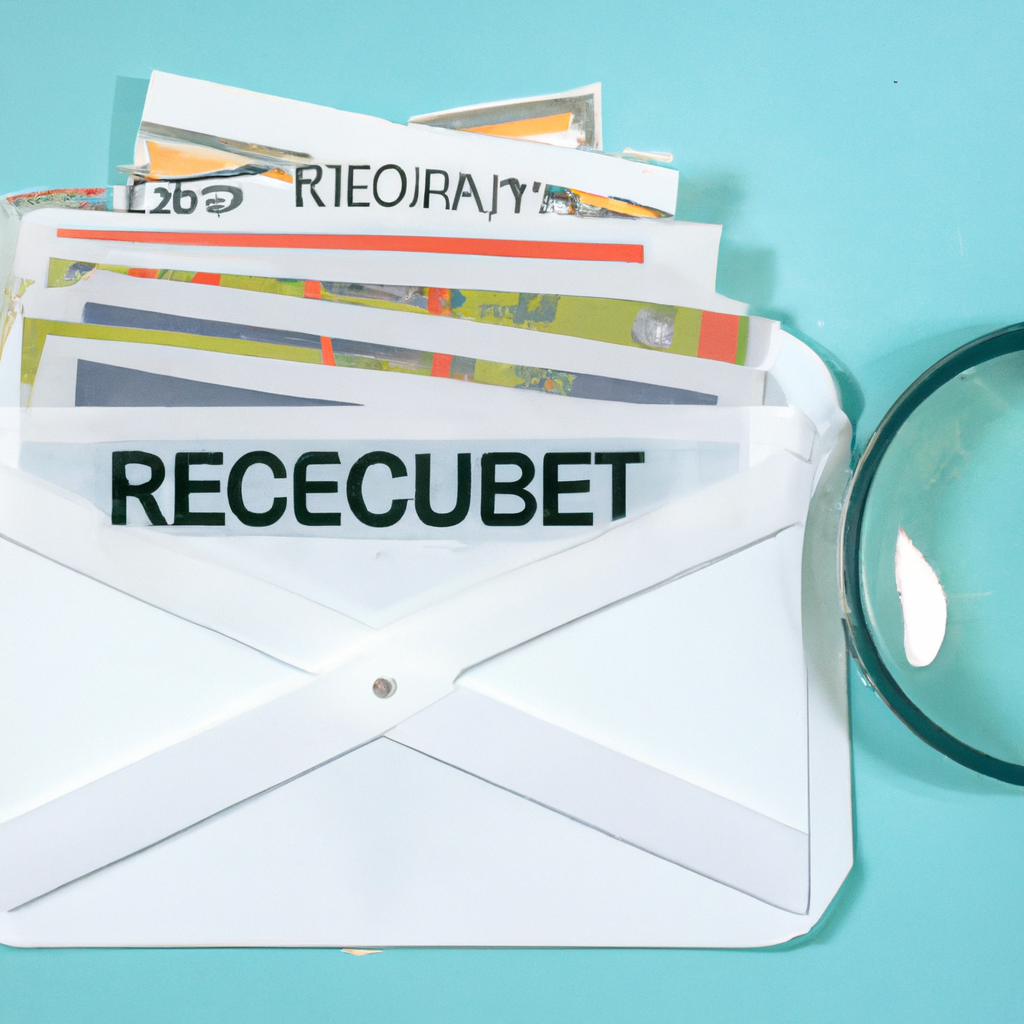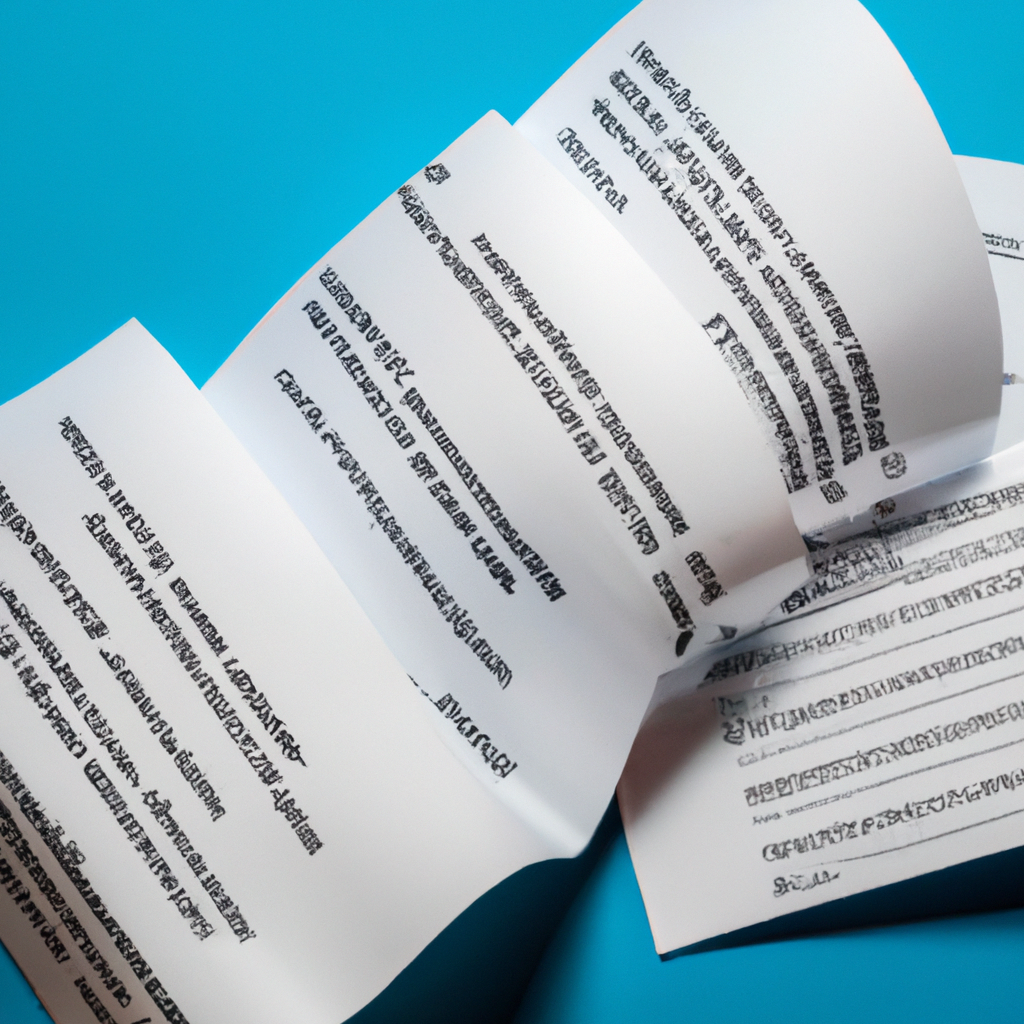If you’re someone who loves to keep all your receipts, your wallet might be overflowing with crumpled pieces of paper. But the burning question remains: do you really need to keep all those receipts when budgeting? Well, the answer isn’t black and white. While it’s important to track your expenses and have proof of your purchases, not every receipt needs to be held onto forever. In this article, we’ll explore the benefits and downsides of keeping receipts when budgeting, so you can make an informed decision that suits your financial habits. So, grab your calculator and let’s dive into the world of receipts and budgeting!

Benefits of keeping receipts
Keeping receipts can provide several benefits when it comes to managing your finances effectively. From serving as proof of purchase to helping you track your expenses and even qualify for tax deductions, here are some of the key advantages of holding onto your receipts.
Proof of purchase
One of the primary reasons to keep receipts is for proof of purchase. Having a receipt can be crucial in case you need to return or exchange an item. It also comes in handy if you need to demonstrate that you own a particular item, especially for higher-value purchases like electronics or furniture. Without a receipt, it can be challenging to establish when and where you bought a particular item.
Expense tracking
Tracking your expenses is essential for maintaining a solid budget and understanding your spending habits. By holding onto receipts, you can have an accurate record of each transaction you make. This record will help you categorize your expenses, identify areas where you may be overspending, and make informed decisions when it comes to budgeting.
Tax deductions
Keeping receipts can be especially beneficial when it comes to tax time. If you are eligible for any tax deductions, such as for business expenses or certain personal expenses, having the necessary receipts can make your life much easier. Receipts serve as evidence of your deductible expenses and help support your claims, potentially saving you money in the form of reduced taxable income.
When to keep receipts
While keeping all of your receipts may not be necessary, there are specific instances where holding onto them becomes particularly important.
Large purchases
For significant purchases, it is essential to keep the receipts. For example, if you buy a new laptop for work or a large appliance for your home, holding onto the receipt is crucial. In addition to serving as proof of purchase, having the receipt handy can help you address any warranty issues that may arise.
Business expenses
If you are a business owner or self-employed, holding onto receipts for your business expenses is vital. These receipts provide documentation for tax purposes and can help you claim eligible deductions. Whether it’s receipts for office supplies, business travel expenses, or equipment purchases, keeping a record of these expenses is essential for accurate bookkeeping and adhering to tax regulations.
Items with warranties
Receipts for items with warranties should be kept until the warranty expires. If the product develops a fault or needs repairs within the warranty period, the receipt will be required to exercise your rights under the warranty. Without proof of purchase, you may not be able to avail of warranty services or repairs, resulting in additional expenses.
How long to keep receipts
While it is not necessary to keep every receipt indefinitely, there are specific guidelines you can follow to ensure you retain receipts for an appropriate length of time.
General recommendation
A general rule of thumb is to keep receipts for at least three to seven years, depending on your specific circumstances. This timeframe covers most situations in which you may need to provide proof of purchase or expense tracking.
Tax-related receipts
When it comes to receipts specifically related to taxes, it is generally advised to keep them for at least seven years. This recommendation aligns with the Internal Revenue Service (IRS) guidelines in the United States. By retaining tax-related receipts for this duration, you have the necessary documentation to address any potential tax audits or inquiries from tax authorities.
Organizing your receipts
Keeping your receipts organized is essential to maximize the benefits they offer. Here are some tips on how to effectively manage your receipts.
Physical storage
For those who prefer physical copies, consider using a designated folder or envelope to store your receipts. Sort them by category, date, or any other method that works for you. This system allows for easy retrieval when needed and helps maintain clear records of your expenses.
Digital storage
In today’s digital age, many people find it convenient to store receipts digitally. You can scan or take a picture of your physical receipts and save them on your computer or cloud storage service. Using clear, descriptive file names and organizing them into folders based on date or expense type can make it simple to locate specific receipts.
Receipt tracking apps
Another option for organizing receipts is to use receipt tracking apps. These apps allow you to capture digital copies of your receipts by taking photos and automatically categorize them. Some apps even have features that extract key information from the receipts, making expense tracking even more streamlined.

Budgeting without receipts
While keeping receipts is advantageous, it is possible to budget effectively without them. Here are alternative methods to consider if you are unable to keep or acquire receipts for various reasons.
Bank and credit card statements
If you use electronic payment methods, your bank and credit card statements can provide a detailed record of your transactions. These statements can act as a substitute for receipts when it comes to tracking expenses. However, it’s important to note that they may lack specific details that a receipt would provide, such as the items purchased or vendor information.
Expense categorization
Even without receipts, you can still categorize your expenses based on your bank or credit card statements. Review your transactions regularly and allocate them to appropriate categories such as groceries, utilities, entertainment, or transportation. This approach gives you a sense of where your money is going, helping you make more informed financial decisions.
Estimating expenses
In some situations, it may be necessary to estimate your expenses when you don’t have access to receipts or detailed transaction records. By analyzing your past spending patterns and adjusting for any known changes, you can come up with reasonable estimates for different expense categories. While not as accurate as having receipts, estimation can still offer insights into your budget.
Receipt alternatives
Beyond traditional paper receipts, there are several alternatives to consider for capturing proof of purchase and tracking your expenses.
Email confirmations
Many retailers and service providers now offer the option to receive receipts via email. By providing your email address during the transaction, you can have an electronic receipt sent directly to your inbox. Saving these email confirmations in a dedicated folder or labeling them appropriately can be an effective way to keep track of your expenses.
Digital receipts
Some stores and businesses offer digital receipts that can be accessed online or through specialized apps. These receipts often have unique codes or QR codes that can be scanned or entered manually to view the details of your purchase. Digital receipts offer convenience, reduce clutter, and make expense tracking easier.
Store loyalty cards
If you frequently shop at specific retailers, consider signing up for their loyalty programs. Loyalty cards not only provide discounts and rewards but also give you the option to track your purchases electronically. By linking your purchases to your loyalty card, you can access digital receipts or transaction histories through the retailer’s website or mobile app.
Privacy and security considerations
When it comes to keeping and storing receipts, it’s essential to be mindful of your privacy and security. Take into account the following considerations:
Personal information on receipts
Receipts often contain personal information, including your name, contact details, and sometimes even credit card information. It is crucial to store and dispose of receipts securely to protect your sensitive information from falling into the wrong hands.
Secure storage options
Whether you choose physical or digital storage methods, make sure to secure your receipts appropriately. For physical receipts, consider investing in a safe or lockable cabinet to prevent unauthorized access. When storing receipts digitally, use secure and encrypted storage options such as password-protected folders or reputable cloud storage providers.
Electronic receipts and the environment
Beyond the convenience and organization that electronic receipts offer, they also have environmental benefits worth considering.
Reducing paper waste
By opting for electronic receipts whenever possible, you contribute to reducing paper waste. Traditional paper receipts require the consumption of significant amounts of paper resources, contributing to deforestation and impacting the environment. Digital receipts eliminate the need for physical paper, resulting in less waste and a smaller ecological footprint.
Environmental impact of digital storage
While digital storage offers environmental benefits, it’s essential to be mindful of the energy consumption associated with electronic devices and data centers. Practice responsible energy usage by turning off devices when not in use and choosing energy-efficient hardware. Additionally, opt for reputable cloud storage providers that prioritize sustainable practices and employ energy-efficient data centers.
Consulting with a financial advisor
If you find managing your finances overwhelming or have complex financial needs, consider consulting with a financial advisor. A professional advisor can provide personalized guidance, assist with budgeting strategies, and help you make informed decisions based on your unique financial goals and circumstances.
When to seek professional help
Seeking the services of a financial advisor can be beneficial in various situations. Whether you need assistance with tax planning, investment strategies, debt management, or overall financial planning, a financial advisor can provide expert advice tailored to your specific needs.
Conclusion
When it comes to keeping receipts, finding a balance between what you need and what is practical for your situation is key. While it’s not necessary to keep every receipt forever, holding onto receipts for significant purchases, business expenses, and items with warranties can save you both time and money in the long run. By organizing your receipts, you can easily track your expenses and provide support for tax deductions if needed. If keeping physical receipts is not feasible, digital alternatives, such as email confirmations and digital receipts, offer convenience and reduced paper waste. Remember to prioritize your privacy and security when storing receipts, and consider consulting with a financial advisor for professional guidance when necessary. Ultimately, the choice of whether to keep receipts or explore alternative methods depends on your personal preferences and circumstances.






